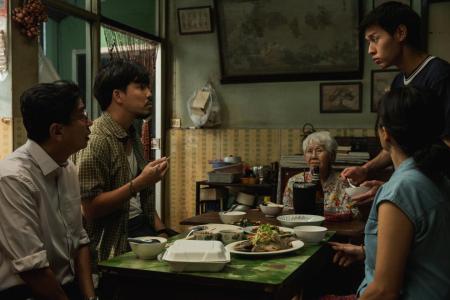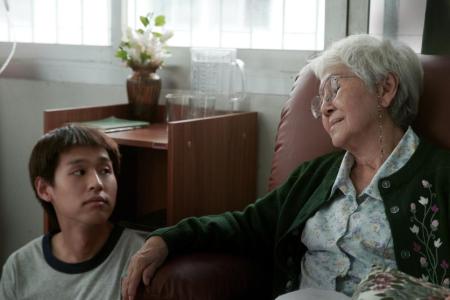Teatime: Where others find poignancy, I see familiar gripes
This is part of a weekly column in which we talk about anything under the sun
A disclaimer first: I am a sucker for tearjerkers, and I cry easily even at silly scenes in rom-coms.
But while I was teary, there were no sniffles or audible sobs when I caught How To Make Millions Before Grandma Dies.
The film has gripped the hearts of Southeast Asians – and of Singaporeans, since its release on May 30. How To Make Millions Before Grandma Dies collected $1 million at the Singapore box office in just nine days after its opening.
The storyline touches on death, age and love across generations – and it has prompted moviegoers to set “I will not cry” challenges. The weeping "after" results are posted on social media platforms TikTok and Instagram.
I thought my mild reaction was because I am old and jaded, as I looked around the hall filled with mostly young people and there was nary a dry eye.
I stole glances at my 23-year-old daughter and wondered: Eh, is there something wrong with the both of us?
When I asked her if she cried, she said: "No... I was trying hard not to laugh at the dramatic sniffles."
Does that make her even more hard-hearted than me? But what really price filial piety?
How To Make Millions Before Grandma Dies, which marks the directorial feature debut of Pat Boonnitipat, follows the story of a young man who puts aside his dream of becoming a professional gamer to take on the role of a devoted grandson.
But M (played by popular Thai singer Billkin) goes to such great lengths to win affection of his dying grandmother (78-year-old actress Usha Seamkhum), only in pursuit of a life-changing, multimillion-dollar inheritance.
I feel the film's success comes from being able to draw out the greed that is inherent in human beings, where often, people make sacrifices expecting something more in return. Greed can rear its ugly head in scenarios when you least expect it.
There is a Chinese saying, 久病床前无孝子, which means "there is no filial son by the bedside of a chronically ill parent". If I may add, unless there is something to be gained from it.
And here is where Boonnitipat has successfully woven that web in the film.
From Ah Ma's wealthy brother to her favoured child (the eldest son) to the gambling youngest son and a quietly suffering daughter – I spotted their shadows in people around me.
I'm certain you too would be familiar with the premises of not making time for loved ones, inheritance tussle and how the favoured child is always right.
Perhaps this is why the film did not move me to tears; instead it reignited the anger in me, and made me scoff at the somewhat peace-making ending.
If I were to be brutally honest, I love How To Make Millions Before Grandma Dies because it shows me that the world has not changed.
Get The New Paper on your phone with the free TNP app. Download from the Apple App Store or Google Play Store now





